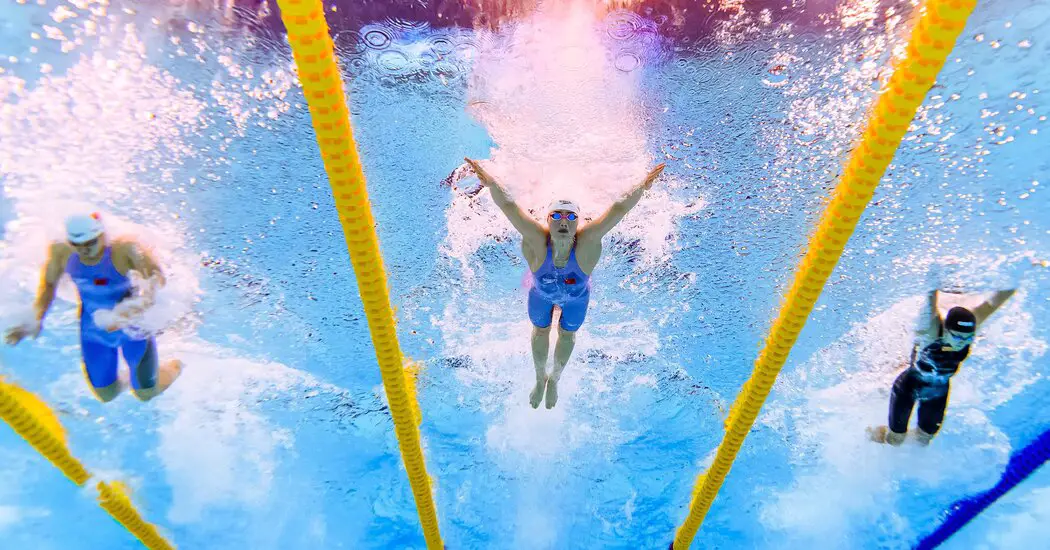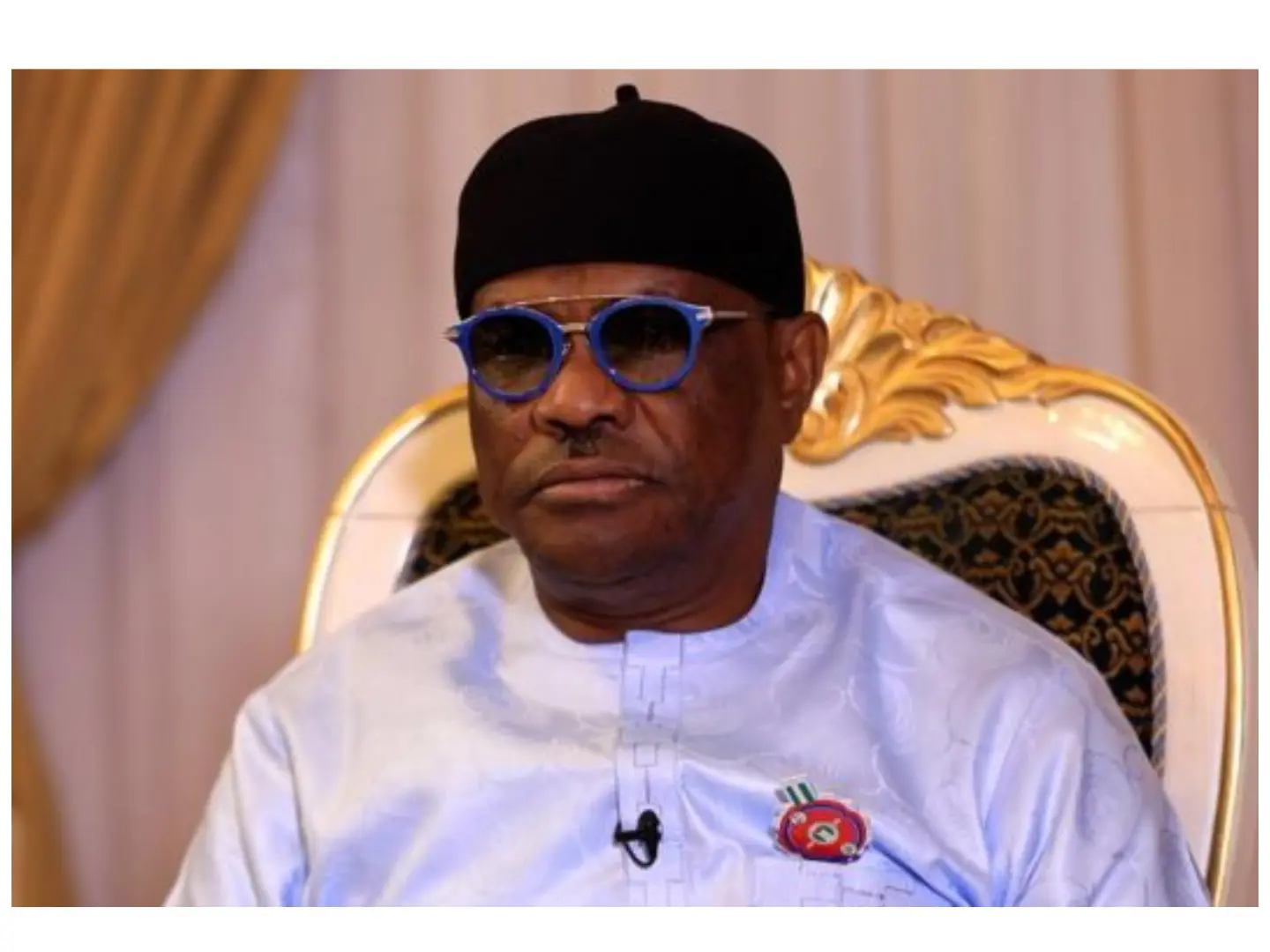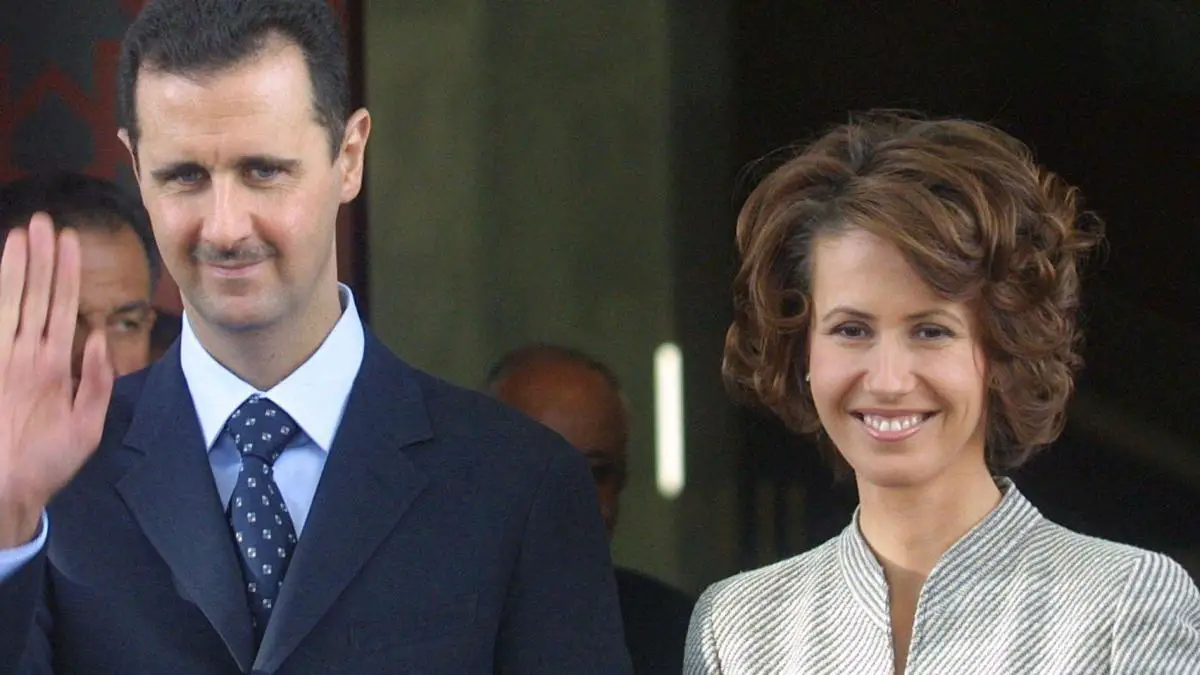
Twenty-three top Chinese swimmers tested positive for the same powerful banned substance seven months before the Tokyo Olympic Games in 2021 but were allowed to escape public scrutiny and continue to compete after top Chinese officials secretly cleared them of doping and the global authority charged with policing drugs in sports chose not to intervene.
Several of the athletes who tested positive — including nearly half of the swimming team that China sent to the Tokyo Games — went on to win medals, including three golds. Many still compete for China and several, including the two-time gold medalist Zhang Yufei, are expected to contend for medals again at this year’s Summer Games in Paris.
China acknowledged the positive tests in a report by its antidoping regulator, saying the swimmers had ingested the banned substance unwittingly and in tiny amounts, and that no action against them was warranted.
But an examination by The New York Times found that the previously unreported episode sharply divided the antidoping world, where China’s record has long been a flashpoint. American officials and other experts said the swimmers should have been suspended or publicly identified pending further investigation, and they suggested that the failure to do so rested with Chinese sports officials; swimming’s international governing body, World Aquatics; and the World Anti-Doping Agency, the global authority that oversees national drug-testing programs.
Those authorities decided not to act despite an email exchange between a Chinese antidoping official and a top world swimming official appearing to indicate that a violation may have taken place and would, at the least, have to be publicly acknowledged.
Even after other national and international antidoping officials repeatedly provided the global regulator, known as WADA, with intelligence suggesting a cover-up and doping by Chinese swimmers, the agency chose not to try to hold the athletes accountable, asserting “a lack of any credible evidence” to challenge China’s version of events. WADA defended its decision not to take action, calling the criticism unsubstantiated.
The F.B.I. learned in the past year about the positive tests, the Chinese rationale for clearing the athletes of wrongdoing, and the inaction by WADA, according to two people familiar with the matter and a document examined by The New York Times.
Federal investigators have taken steps in recent weeks to learn more about what occurred. A spokesman for the F.B.I. declined to comment. Any inquiry by American authorities would come with a powerful new tool: a law passed in 2020 giving the Justice Department powers to criminally prosecute attempts to corrupt international sports events through doping, no matter where they take place.
In a statement in response to questions from The Times, the United States Anti-Doping Agency accused WADA, its global counterpart, of failing in its mission.
“This appears to be a devastating stab in the back of clean athletes and a deep betrayal of all the athletes who compete fairly and follow the rules,” said the U.S. antidoping agency’s chief executive officer, Travis T. Tygart, who acknowledged providing WADA with allegations of doping in Chinese swimming multiple times since 2020. “All of those with dirty hands in burying these positives and suppressing the voices of courageous whistle-blowers must be held accountable to the fullest extent of the rules and law.”
This article is based on a review of confidential documents and emails — including a report compiled by the Chinese antidoping agency and submitted to WADA — and interviews with people involved in antidoping efforts around the world. Some interviews were conducted on the basis that sources not be identified because they were not authorized to speak publicly or had concerns about retaliation.
During the course of the reporting for this article, journalists for The Times learned that a team from ARD, Germany’s public broadcaster, was also examining the episode. ARD shared some of its reporting and video footage with The Times and the two news organizations agreed to coordinate publication of their findings, which were arrived at independently.
Experts in antidoping, drug-testing and compliance interviewed by The Times said the handling of the case of the Chinese swimmers and the lack of disclosure about the positive tests ran counter to long-established precedents meant to ensure transparency, accountability and competitive fairness in elite sports.
The episode also exposes shortcomings in the system set up to police doping in sports, with one of the world’s most powerful countries able to send athletes who had recently tested positive for a banned drug to the world’s most high-profile athletic competition, where they set world and Olympic records without any public disclosure.
An investigation by the Chinese antidoping agency, known as Chinada, suggested that the incident stemmed from a tainted food supply, a finding that some experts considered implausible.
In their report, Chinese investigators described how many of the country’s best swimmers were staying at the same hotel for a domestic meet in the final days of 2020 and the first days of 2021. Two months after the swimmers tested positive for the banned substance — a prescription heart drug that can enhance performance — Chinese investigators reported finding trace amounts of the substance in the hotel’s kitchen.
Their report offered no evidence of how the drug got there, despite enlisting the help of China’s national police. But they concluded that the swimmers had unwittingly ingested it in small amounts.
WADA confirmed in a statement that it had “carefully reviewed the decision” made by the Chinese and chose not to act after consulting scientists and external legal counsel “to thoroughly test the contamination theory presented by Chinada.”
“Ultimately, we concluded that there was no concrete basis to challenge the asserted contamination,” WADA’s senior director of science and medicine, Olivier Rabin, said in the statement.
In contrast to WADA’s position, the International Testing Agency, a group based in Switzerland that was created after an earlier Russian doping scandal to provide an extra layer of independent oversight for global athletic competition, said its own assessment of the case remains ongoing.
Chinada said in a statement that it determined its athletes had not violated any antidoping laws and therefore it was not obliged to publish any details related to the case without the athletes’ consent.
The Chinese Swimming Association did not reply to a fax seeking comment on the tests.
Swimming’s governing body confirmed the cases had been reviewed by a doping control board and been subjected to independent expert scrutiny, without providing further details. “World Aquatics is confident that these A.A.F.s were handled diligently and professionally, and in accordance with all applicable antidoping regulations, including the World Anti-Doping Code,” it said, referring to adverse analytical findings, the term for positive tests.
The story that the swimmers had ingested the substance unknowingly provided a rationale for Chinese authorities to break with normal antidoping protocols. Those would typically involve a public declaration that the athletes in question were being temporarily suspended pending further investigation, particularly if a finding of food contamination had not yet been established.
The handling of the matter by the Chinese authorities and the global regulators came at an especially sensitive moment. The swimmers were planning to compete in just a few months at the Summer Games in Tokyo, and China, battered by the pandemic, was to host the Winter Games the following year.
WADA’s handling of the positives involving the Chinese swimmers stood in stark contrast to how it acted less than a year later when faced with a strikingly similar episode involving a Russian figure skater who tested positive for the same banned heart drug, trimetazidine, just before the 2022 Beijing Winter Olympic Games. That skater, Kamila Valieva, blamed contaminated food and tested for relatively low levels of the substance.
In that case, WADA swiftly and successfully appealed the Russian antidoping agency’s decision to clear her, and the top court in sports eventually banned her from international competition for four years.
The Valieva case came after WADA was accused of ignoring clues to Russia’s systematic doping for years. Since that scandal, some antidoping authorities have agitated for reform at the agency, hoping to ensure that the world’s doping watchdog would never again defer to a nation to investigate itself. Now it appears to be facing similar questions.
National Pride
The Olympic Games are a point of pride for the Chinese government, as a way to project the country’s strength and competence. In recent years China has focused in particular on sports — marquee ones like swimming, but also minor ones like women’s weight lifting — where it can collect medals in bulk.
But the Games are also hugely popular among the broader population, and the sudden rise of Chinese athletes in swimming — a source of great success but also great scandal — has only increased the sport’s profile. State media is already forecasting “glory” at the Paris Olympics.
The story of the positive tests began unfolding a year into the coronavirus pandemic, a period when antidoping authorities feared that travel bans and closed borders in many countries would make it easier to cheat. Those restrictions would reduce the opportunities for testing at international events and lead to an almost total reliance on national antidoping agencies.
The roughly two dozen positive tests involving Chinese swimmers were collected at a New Year’s event held over four days in December 2020 and January 2021 in Shijiazhuang, a provincial city of about 11 million people a few hours southwest of Beijing.
The meet, hosted by China’s national swimming association, was designed to be a competitive warm-up for 200 of the country’s top athletes, a group that had been training in seclusion during the pandemic but that was then only months away from the national qualifying event for the Summer Olympic Games, which were set to open in late July in Tokyo.
At the meet, as is typical at such competitions, Chinada tested the top two finishers in each event and a couple others from each of the 29 races.
Samples are supposed to be immediately sent to an accredited laboratory, analyzed and reported to WADA and World Aquatics, the association that governs world swimming. But for reasons that remain unclear, the results of the tests in Shijiazhuang were not reported to the computer management system that tracks all testing of athletes until March 15, 2021, two and a half months later. Chinada said that WADA allowed it to freeze the tests for a month after they were collected because of the pandemic.
Ultimately, according to the 61-page investigative report compiled by Chinada and reviewed by The Times, a total of 60 tests were conducted on 39 swimmers. Those urine samples produced 28 positives involving 23 of the meet’s competitors — a shockingly high failure rate. All of the samples tested positive for the same drug, trimetazidine, known as TMZ.
TMZ is a prescription medication designed to help people with heart disease. It is included in a category of performance-enhancing drugs that come with the harshest penalties. It can help athletes increase stamina and endurance and hasten recovery times, and is difficult to detect because it quickly clears through the body.
In the court ruling explaining the decision to ban Ms. Valieva, the Russian figure skater who tested positive for the same substance, arbitrators referred to scientific studies that state TMZ “is widely recommended in elite sport in particular in support of the heart in connection with heavy training.”
Chinada’s testing lab reported finding only trace amounts of TMZ in the samples of its swimmers. But any amount is enough to register as a failed test and prompt an immediate temporary suspension except in the rarest circumstances — including the one explanation China offered.
No such suspensions were imposed, no public disclosure was made, and the swimmers were able to go on to the Olympic qualifying meet months later, and then the Tokyo Games, without any attempts by WADA to block their participation. Had any of them been suspended even temporarily, that most likely would have endangered their ability to compete at the qualifying meet, not to mention subjecting China to international scrutiny and criticism.
Contrary to claims in the Chinada report, TMZ would not have been an unfamiliar drug in Chinese swimming circles. In 2014, the country’s greatest and most famous swimmer, the Olympic champion Sun Yang, was suspended for three months after testing positive for the drug at a major meet. (He is currently serving an eight-year doping ban from a different episode, which was reduced to four years on appeal.)
This time, the testers collected positive results from an even larger group of Olympians, including such stars as:
-
Ms. Zhang, who would go on to win four medals in Tokyo, including two golds, and help set a world record with her freestyle relay teammates
-
Wang Shun, who in winning the 200 individual medley at the Olympics became only the second Chinese man to win an individual swimming gold
-
Qin Haiyang, who last year became the world-record holder in the 200-meter breaststroke
All would have been subject to testing at the Olympics, and there were no reports of positive results there.
The final report by the Chinese said investigators had discovered traces of TMZ in sink drains, spice containers and cooktop vents in the kitchen of the Huayang Holiday Hotel in Shijiazhuang, where most of the swimmers and coaches at the meet had stayed. But at no time did they claim to have found it in any food eaten by the swimmers.
The report said that the Chinese investigators went so far as to conduct human experiments to see how the body processed TMZ. Video surveillance tapes were scoured. All the athletes were questioned. But they did not identify where the drug came from or why it was in a kitchen.
There is also evidence that the Chinese antidoping authorities knew on March 15, 2021, the day they reported the positive tests, that they faced the possibility of having to publicly disclose the names of the swimmers. That day, the top legal official at Chinada wrote an email to her counterpart at the world swimming association that an “initial review and preliminary investigation shows that these are not normal” positive tests.
“We are doing our best to conduct investigation on these cases at the moment,” the official, Lin Haiyan, wrote.
At the same time, Ms. Lin cited existing rules and asked that “in order to protect athletes’ privacy and cooperate with the investigation, please keep athletes’ information and the case strictly confidential until it is publicly disclosed by Chinada.”
Emails obtained by The Times also show that by April 2021, at least two of WADA’s top officials — the most senior executive at the agency and its top legal officer — had been informed that the Chinese swimmers had tested positive.
In their report, filed in June 2021, Chinese investigators ruled out contaminated supplements or sabotage as reasons for the positive tests. They offered no explanation, however, for how a prescription drug available only in pill form had contaminated an entire kitchen.
WADA said “the contamination scenario was further supported” by the low concentrations of the drug and the fluctuation of test results between positive and negative.
The Chinese pointed to low concentrations of TMZ in the urine samples to conclude intentional doping was “impossible.”
That claim was rejected by five independent experts who discussed the matter with The New York Times. The low concentrations, they said, could just as easily have meant the athletes had been at the end of the excretion period for the drug.
According to antidoping rules, procedures that would lead to provisional suspensions for athletes found to have tested positive for the type of drug found in the Chinese swimmers’ samples could be waived only in the rarest circumstances and after meeting a high bar — usually only when accidental food contamination can be proven.
In that way, the theory advanced by the Chinese report — tainted food — offered a potential path to clearing the swimmers without punishment or publicity.
Global Concerns
The global antidoping system is in many ways built on trust, since WADA must rely on a network of national antidoping officials to police each country’s own athletes. The failure of national bodies to carry out their responsibilities, as the world found after revelations of a massive state-sponsored doping program orchestrated by Russia a decade ago, can corrupt entire sports and the results of the Olympic Games and other world championships.
To reduce that risk, WADA is expected to step in whenever doubts emerge, or if national bodies appear to have favored their own athletes.
A large cluster of positive tests and an unusual claim of mass contamination through tainted food, then, might have merited a deeper, and independent, investigation.
Word of the positive tests, though, began leaking out.
The International Testing Agency received whistle-blower evidence about the episode around the same time as the Tokyo Olympic Games, and later did its own examination that challenged China’s findings.
“In parallel to a full assessment of the information received that remains active, the I.T.A. conducted many targeted follow-up testing missions in 2021, 2022, 2023 and up until today,” the agency said in a statement.
In the United States, antidoping officials collected and passed on multiple tips to WADA from its own whistle-blowers, who accused China of covering up not just the nearly two dozen tests in question. Some of the swimmers identified by the whistle-blowers matched those who tested positive.
In response to one tip passed on by the Americans, World Anti-Doping Agency officials told their U.S. agency counterpart that “they remember the allegations quite well,” that they held “the same intelligence in the summer of 2021” and that “there was no impetus for WADA to investigate,” USADA said in response to questions from the The Times.
That decision bothered several scientists and experts with years of experience on sports doping cases who were interviewed by The Times. They all rejected the Chinese report’s claim that low concentrations of the drug found in athletes’ samples meant intentional doping was all but impossible, but were divided over the possibility that contamination was the most likely cause of the positive tests.
David Cowan, one of the world’s leading experts on drugs in sports and the former longtime director of Britain’s WADA-accredited laboratory, said he could not come to a conclusion on whether there had been “a contamination or a pharmacologically effective dose.”
But even the experts’ discord revealed a common thread: They all agreed that the high number of positives in one place and the stakes — for China, for the antidoping movement, and for the looming Tokyo and Beijing Olympic Games — should have prompted WADA or World Aquatics to act far more aggressively.
What is known is that WADA’s own data shows a spike in the number of TMZ cases in 2021. A year earlier, there had been only three positive tests worldwide. A year later, there were 18. But in 2021, there were 37.
David Howman, a former director general of WADA, said he had seen the Chinada report. He described the situation as “shocking.”
“My concern is intense,” said Mr. Howman, who is now the chairman of track and field’s independent antidoping body, the Athletics Integrity Unit. Important processes that should have been followed after the discovery of the positive tests, he said, appeared not to have been.
“What it would say to me immediately is that perhaps there was some form of program in this sport to ‘prepare’ swimmers for the Tokyo Olympics,” Mr. Howman said.
Mr. Howman spoke in an interview on the sidelines of an annual symposium hosted by WADA in Lausanne, Switzerland. On its final night, the organization held a gala evening bringing together more than a thousand officials to celebrate 25 years in existence.
Celebratory speeches were made, including one by Thomas Bach, the president of the International Olympic Committee. In it, he lauded WADA’s role in taking on drug cheats.
Claire Fu in Seoul, and Alexandra Stevenson and Zixu Wang in Hong Kong, and Matthew Cullen in Washington contributed reporting and research.







